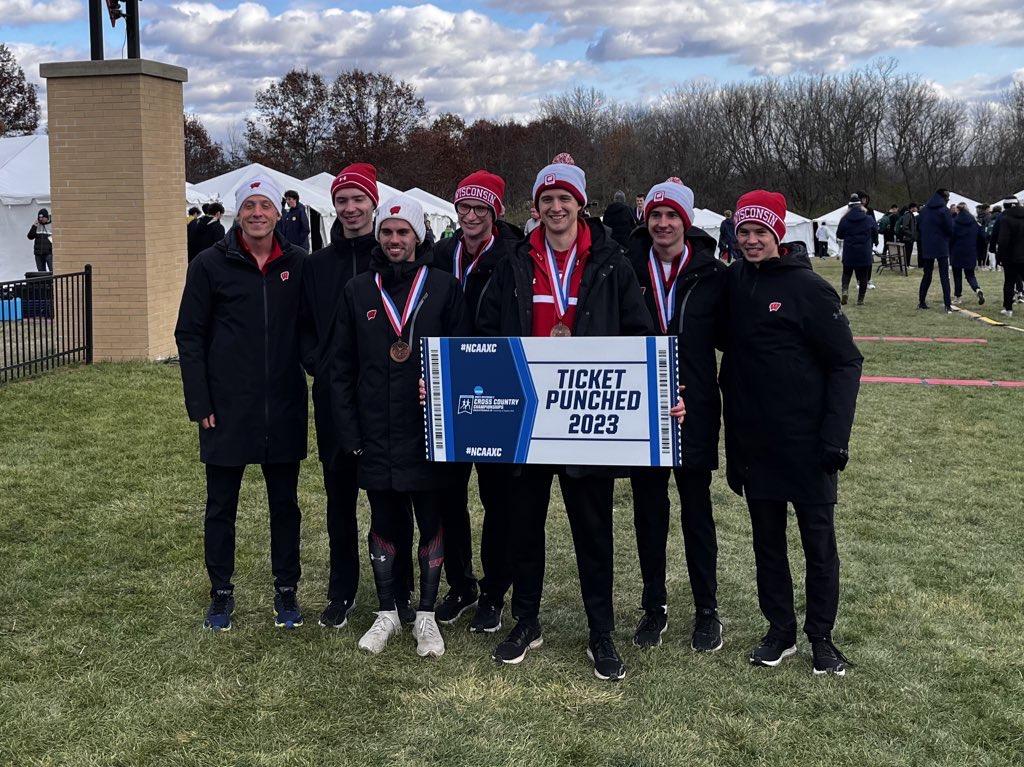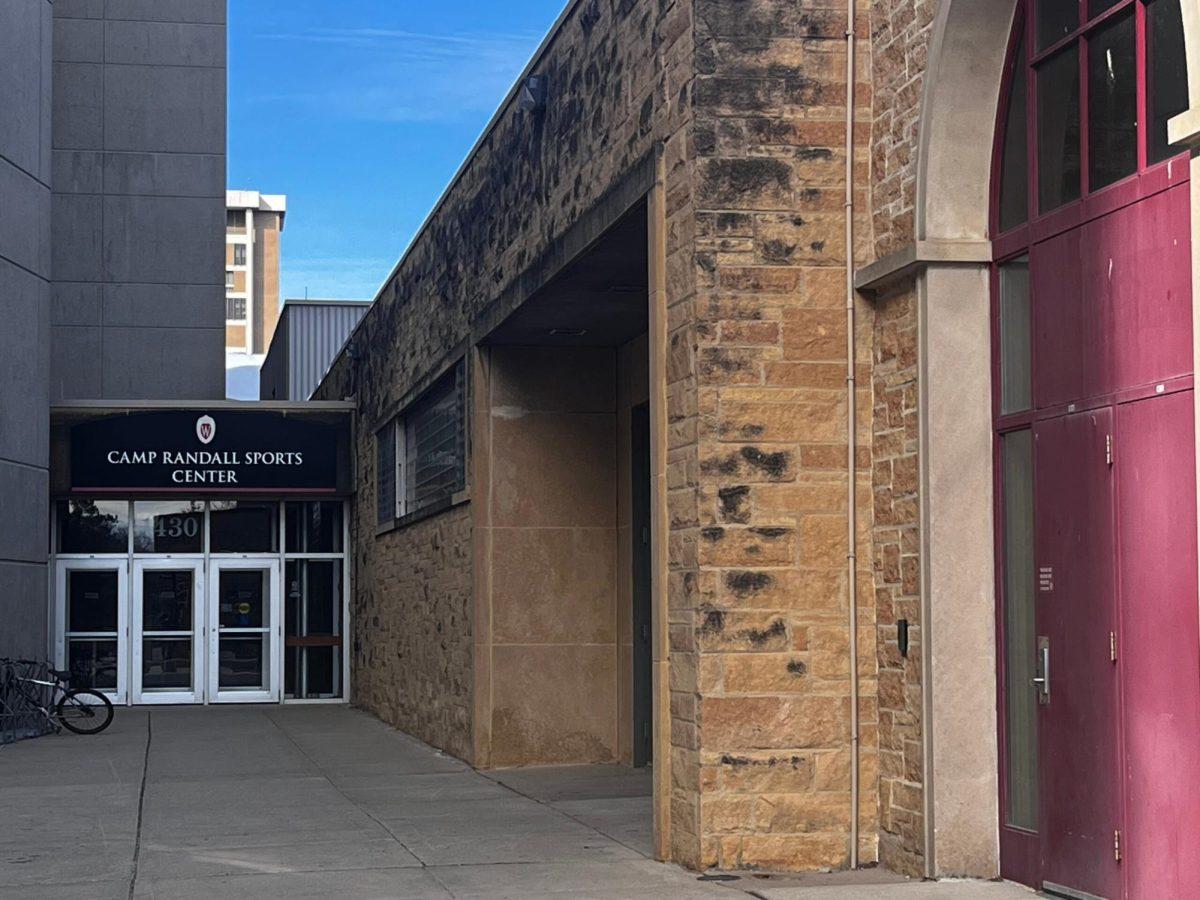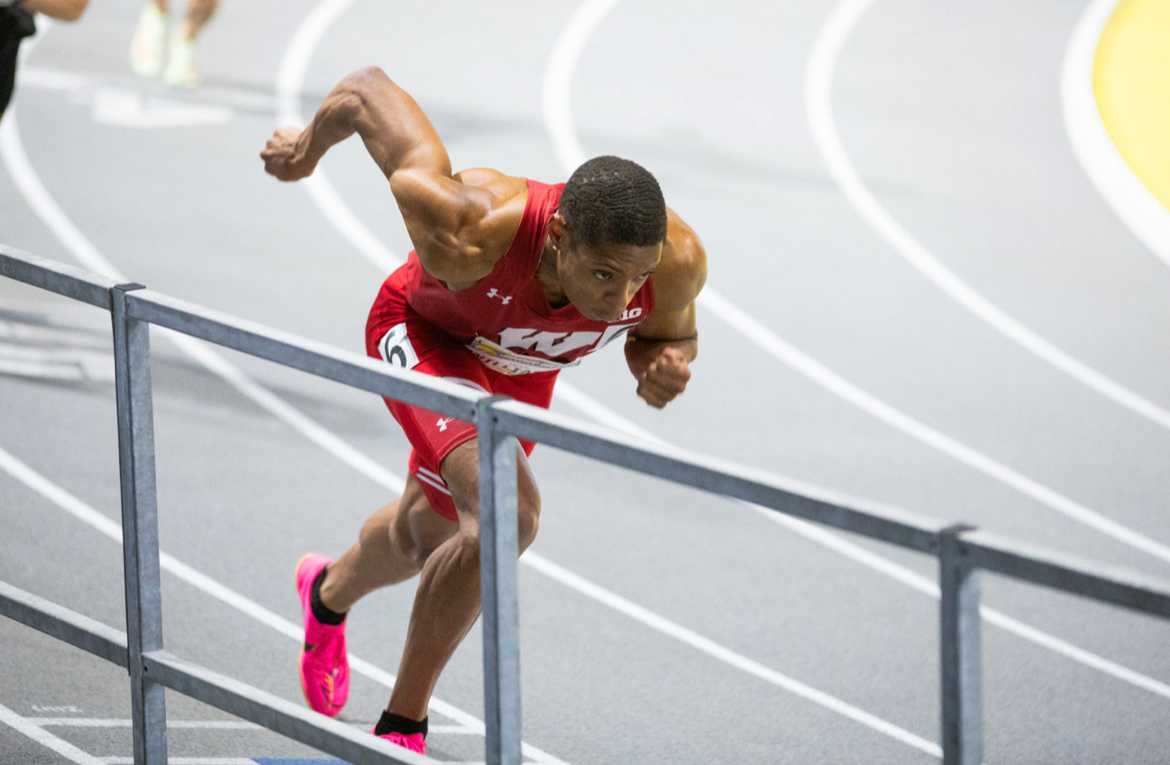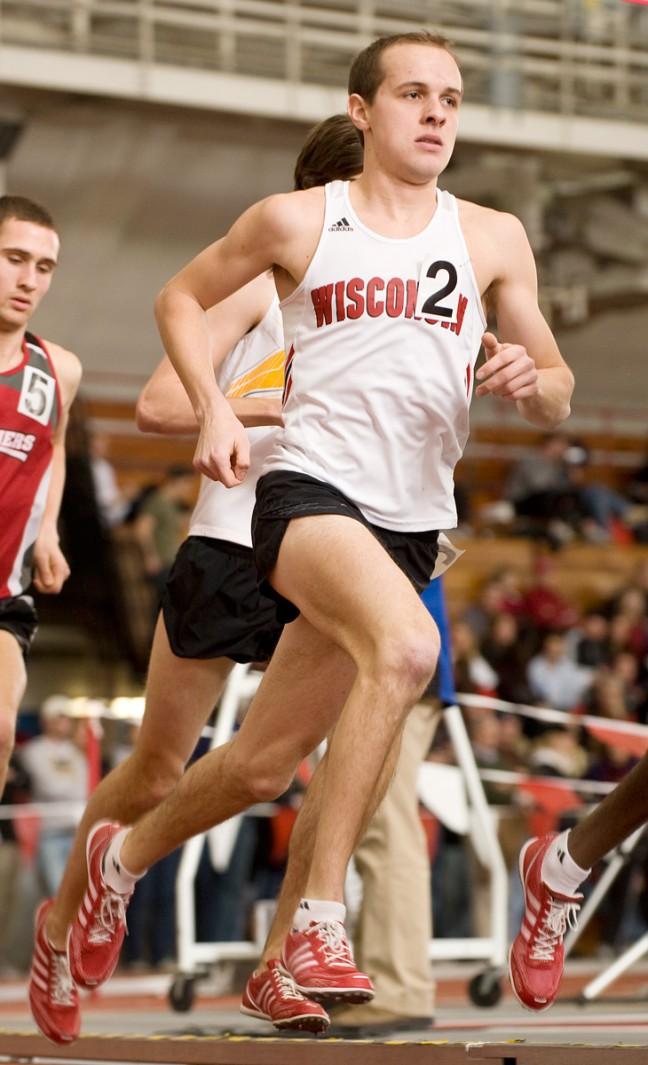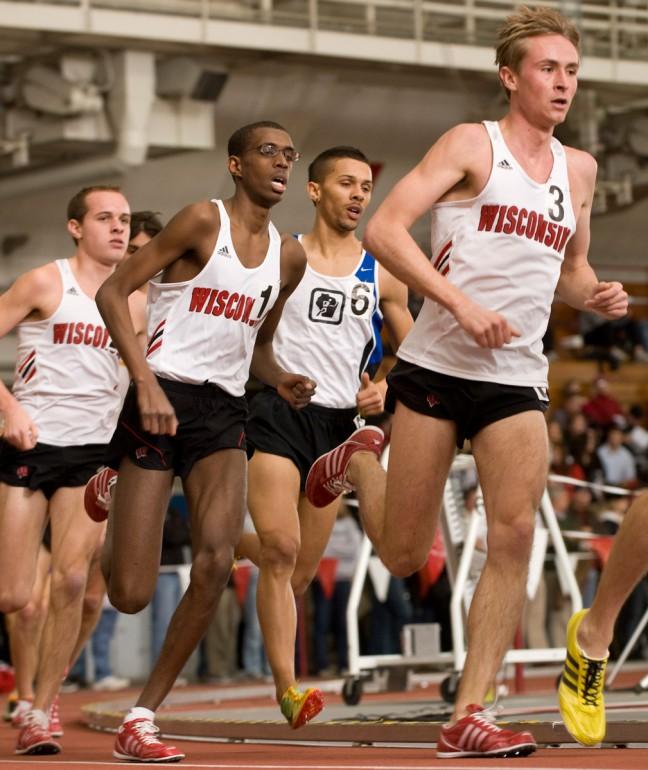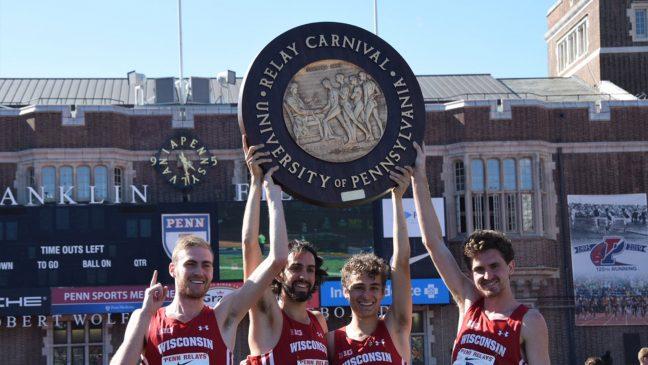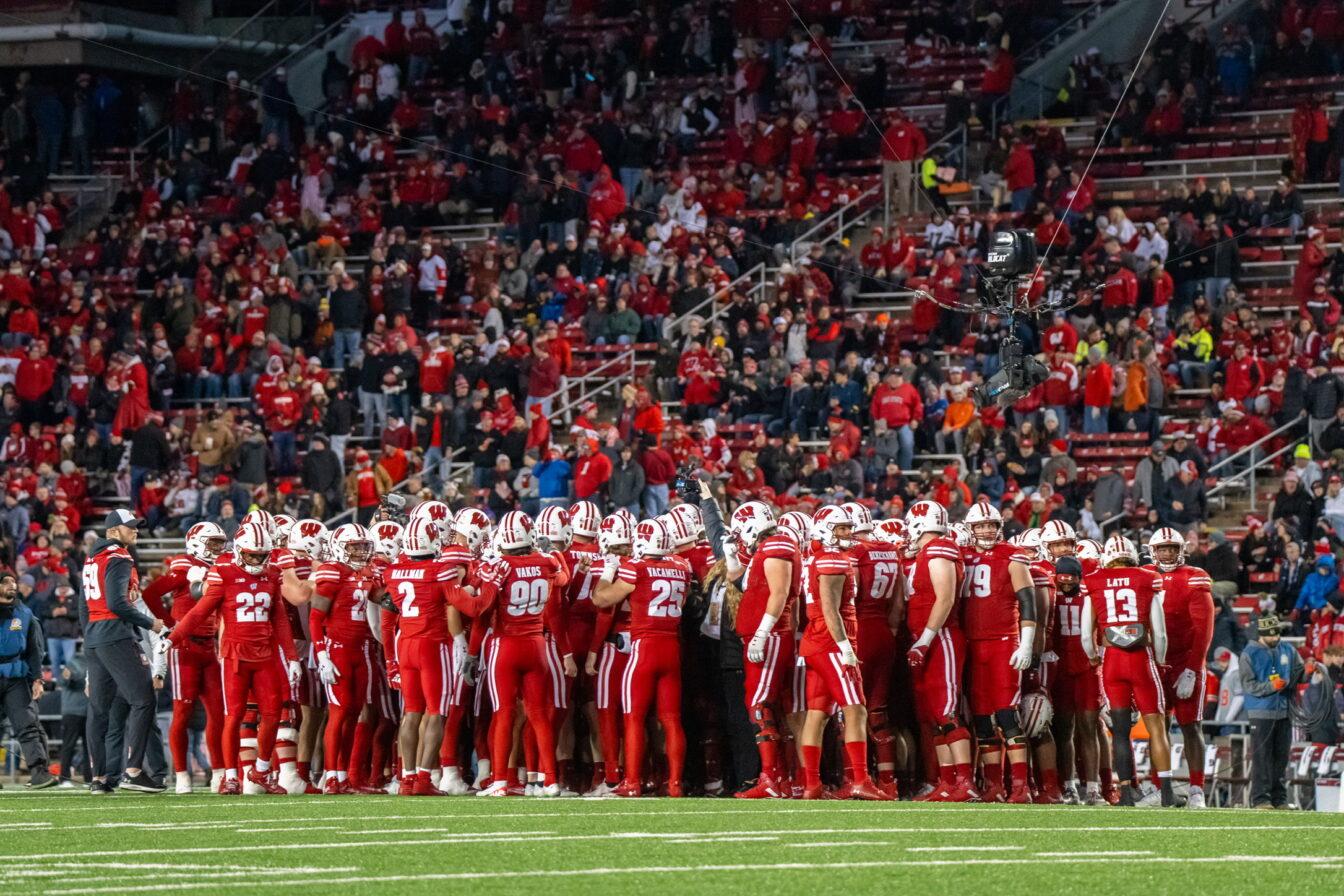[media-credit name=’Photo courtesy Michelle Tegenkamp’ align=’alignnone’ width=’648′] [/media-credit]As a high school runner, Matt Tegenkamp first had the dream. In 2005, after his cross country career at the University of Wisconsin had ended, the dream started to become a reality when he began running professionally with Nike.
[/media-credit]As a high school runner, Matt Tegenkamp first had the dream. In 2005, after his cross country career at the University of Wisconsin had ended, the dream started to become a reality when he began running professionally with Nike.
But it wasn’t until this summer when the dream was finally achieved: he was an Olympian.
Tegenkamp was one of three Americans to qualify for the 5,000-meter race in Beijing this August, something he has been working toward since he was ina high schooler in Missouri.
“The Olympics is kind of the pinnacle of our sport, the highest level that you can get,” Tegenkamp said in a phone interview. “I first realized the dream was attainable in 2001 after my freshman year of college. I had quite a bit of success. It definitely let me know I could get up to a very elite, professional level within running.”
But a number of injuries throughout his collegiate career put a damper on things. Among other things, it caused him to miss out on the opportunity to qualify for the 2004 Olympic Games in Athens.
But with every setback came support from those close to him, including former UW men’s cross country coach Jerry Schumacher.
“The whole point in coming to Wisconsin for me … was because Wisconsin had such a rich tradition in distance running,” Tegenkamp said. “Their coach — he’s not currently the coach there anymore, but he’s still my coach [with Nike] — Jerry Schumacher was a huge motivator. Any time there were any setbacks, it was always, ‘Look at the bigger picture. We’ll get back to where we need to be.’ It was the same way with family. Everyone was really supportive.”
Finally fully healthy in 2008, Tegenkamp made the most of his opportunity. At the United .States. Olympic trials, he finished second, securing himself a spot on the team. He had already accomplished the first step — posting a time under 13:21.5 — a year earlier.
“It’s a very cutthroat system. A lot of countries do two qualifiers, and then they do a selection for the first spot,” Tegenkamp said. “In the U.S., it’s just the top three qualifiers on that day at that race. So you need to be healthy and definitely on top of your game at that point. Unfortunately, I wasn’t quite on top of my game at the Olympic trials, but I was still lucky enough — I got second, but not by very much.
“At that point, it was a huge relief and a huge monkey off my back at that point for making the Olympic team.”
Staying focused on the goal
Once Tegenkamp got to Beijing, he made it a priority to avoid any distractions that might detract him from what he went there to do. He joined the other U.S. athletes for the Parade of Nations and opening ceremonies August Aug. 8, but stayed at a training camp outside of the city until his races.
Since he didn’t run in the finals until the last day of competition, he missed out on the parties in the Olympic village and didn’t get to hang out with athletes who had already finished their events.
But that was fine with him.
“It can get a little out of control,” Tegenkamp said.
The issue of pollution was also talked about before the games began, with many predicting that Beijing’s smog problem could impact the performance of the athletes. But Tegenkamp never worried about any of that, either.
“Going into the games, everybody was asking about how we were going to deal with it, and I just said I was going to worry about things that I could control,” Tegenkamp said. “That included my preparation for racing and all of that. Anything else was out of my hands. I’m glad that that’s the attitude I took, because once we got there, everything was fine.”
The humidity, though, was something Tegenkamphe and the other athletes had to deal with, he said. Since Beijing is situated in a bowl, the heat gets trapped by the surrounding mountains, making for very warm conditions.
“That was the only thing that was really hard to get used to,” Tegenkamp said. “Training in Madison helped a little bit with that;, being there in the middle of the summer helped the transition.”
It wasn’t all work for Tegenkamp during his time in Beijing, however. He and his family also managed to do some sightseeing when everything was all said and done, making it to TienanmenTiananmen Square and the Great Wall.
“It just capped off a great two weeks,” he said.
Coming up short
Tegenkamp had no problem qualifying for the finals when he ran in the first of three heats on Aug. 20. His time of 13:37.36 was the fastest in the heat by less than one second, securing him a spot in the final race three days later.
“The prelim went great,” Tegenkamp said. “I was real, real happy and real confident after that race that all the preparation had gone according to plan, and we were in a great spot to compete well at the final.”
By the time the finals rolled around, though, it was a different story.
He ran a faster time than he had in the qualifying heat — 13:33.13 — but he finished a disappointing 13th out of 15 athletes. Ethiopia’s Kenenisa Bekele won the gold with a time of 12:57.82, which set a new Olympic record.
Tegenkamp admitted the pressure of running in an Olympic final sunk in, something he managed to overcome in his earlier heat.
“I think going into the final, a little bit of the pressure and the nerves got to me a little bit,” he said. “We knew that it was going to be a very tough race and a very fast race. As a distance runner, the motto is that you have to learn to be uncomfortable for long periods of time, but also be relaxed at the same time. I was not patient at all in my race.”
With nearly half the race to go, Tegenkamp just didn’t have it in him anymore. His pace dropped off and he began to fade from the pack.
“When the race actually started with 2,000 meters to go, I was already tired and spent,” he said. “It was just a mistake and it was unfortunate that it happened at that point in time. But hopefully it will be something I can use as experience for the next time around.”
Best yet to come?
With the disappointing finish behind him, Tegenkamp has already been able to look back and take pride in what he accomplished — not only making it to Beijing, but giving himself a chance to win a gold medal.
“As an athlete, it’s something that we put ourselves in position to make the most important races of the year. That’s what we want to do,” Tegenkamp said. “So making it to the Ggames, it was a great experience. It will be something that will be amazing to look back on way down the road in the future and say ‘I was a part of that.'”
The 26-year-old Tegenkamp says he’s not done yet. He’ll continue to run professionally for Nike, with many of his races taking place in Europe.
And while it may be four years down the road, the 2012 games in London are already in sight for the former Badger. As crazy as it might sound, he thinks he’ll be at the peak of his career at 30 years old by that point.
“I’m definitely looking at 2012,” he said. “That will be my best Olympic shot. That will be when I’m in the prime of my running at that point in time. So we’re going to take a look at how things went this year and over the past couple of years. There’s going to be some changes made within training, and hopefully it will all work out for the best and I’ll be in a better position in 2012 than I was here.”








